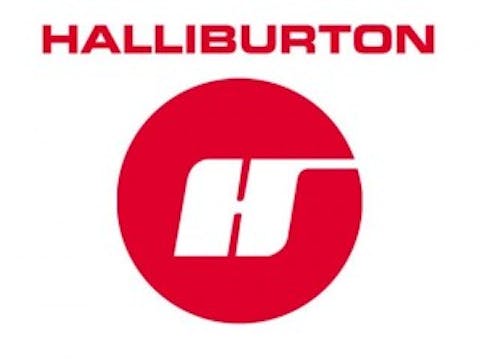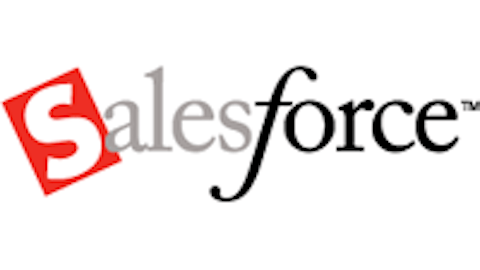
ValueAct did dump a couple of its top picks, selling off all of its shares of Halliburton Company (NYSE:HAL) and Moody’s Corporation (NYSE:MCO), which at the end of 2012 were the fund’s seventh and fourth largest holdings, respectively. The Halliburton sell-off comes as the North American land-rig count is expected to plateau in the near future, which will have a negative impact on Halliburton Company (NYSE:HAL)’s business.
The new environmental regulations for hydraulic fracturing (or fracking) in the shale plays could also impact the company negatively, as it would force Halliburton Company (NYSE:HAL) to reveal the structure of its fluids, and potentially wipe out its competitive advantage in the high-end pressure-pumping market. There also remains the overhang related to the liability exposure to the Deepwater Horizon rig disaster.
Causing problems for Moody’s Corporation (NYSE:MCO) is the sluggish U.S economy and financial industry concerns. In addition, many of the credit-rating agencies have been under scrutiny related to inflated ratings on mortgage-backed securities that resulted in the 2008 to 2009 credit crisis.
Moody’s Corporation (NYSE:MCO) is also seeing robust competition in most of the markets, including Fitch, S&P Ratings and Morningstar for its credit-rating sector. In the analytics segment, the competition includes Dun & Bradstreet, Bloomberg and Fiserv. Billionaire Warren Buffett also recently trimmed his Moody’s Corporation (NYSE:MCO) stake (see why).
Meanwhile, ValueAct added Microsoft Corporation (NASDAQ:MSFT) and McGraw-Hill to its portfolio during the first quarter. Microsoft now makes up approximately 10.8% of its 13F and is the fund’s fourth-largest holding. The tech company’s fiscal third-quarter 2013 EPS earnings revealed that all of the company’s segments grew strongly from the year-ago quarter.
Microsoft Corporation (NASDAQ:MSFT) still has a leading position in the PC market, given its operating systems are used in the majority of PCs worldwide. The PC market has been slowing down over the last two years due to tablet cannibalization. Microsoft’s future growth will come, in part, from its mobile segment.
The company launched Windows 8 with a mobile focus, but its other major tailwind business will be the cloud space via its server business. The server segment posted double-digit revenue growth in fiscal years 2010, 2011 and 2012. Billionaire David Einhorn has also gotten bullish on Microsoft Corporation (NASDAQ:MSFT) of late (see other stocks Einhorn’s bullish on).
ValueAct sold off one credit-rating agency, Moody’s Corporation (NYSE:MCO), and added the other major agency, McGraw-Hill, to its portfolio, which is now ValueAct’s 12th largest holding. McGraw’s key segments are S&P Capital IP, which provides risk evaluation, investment research and data, and Standard & Poor s Ratings Services, providing credit ratings.
Key initiatives for the company include the formation of the S&P Dow Jones Indices and S&P Capital IQ’s acquisitions of Credit Market Analysis Limited, QuantHouse, R2 Financial Technologies and TheMarkets.com. During the fourth quarter, both segments (S&P Capital IQ and S&P Dow Jones Indices) saw revenue up 15% year-over-year. With analysts expecting the company to grow EPS at an impressive annualized 18.3% over the next five years, its PEG ratio is at 0.9, making the stock a growth at a reasonable-price opportunity.
ValueAct kept Motorola Solutions Inc (NYSE:MSI) as its number-one stock holding, making up 20.9% of its total public-equity portfolio. Motorola Solutions Inc (NYSE:MSI) remains the largest developer of public-safety products, owning nearly 50% of the total market share in the U.S. Motorola Solutions recently posted 1Q EPS of $0.66 versus $0.59 for the same quarter last year but below consensus forecast of $0.67.
The company is also looking to expand beyond the U.S., with entry into Europe, the Middle East, Australia and Latin America. One of the long-term revenue boosters will be the U.S. government’s plan to install a nationwide wireless network for public safety. Industry researchers have estimated that the market size of public safety may reach $6.5 billion in 2014, while management is looking for a business prospect of more than $1 billion in the next three-to-four years.
Motorola Solutions Inc (NYSE:MSI) also has an agreement with Verizon Communications Inc. (NYSE:VZ) Wireless to install a standard-based public-safety broadband network for mission-critical operations leveraging on the nationwide LTE network of Verizon Communications Inc. (NYSE:VZ). ValueAct has the largest position by far in Motorola Solutions, however, there are a few other funds loving the communications stock (see all the funds here).
Don’t be fooled
ValueAct fell out of love with Halliburton and Moody’s, and for good reason. Halliburton Company (NYSE:HAL) still has overhang related to the Deepwater incident and Moody’s has overhang from the 2008 financial crisis. However, ValueAct did trade out one credit-rating agency for another, selling Moody’s and buying up McGraw Hill.
McGraw has made some strategic acquisitions lately to help hedge the same overhang Moody’s Corporation (NYSE:MCO) is seeing. Meanwhile, Microsoft has interesting exposure to the cloud space and ValueAct’s top bet, Motorola Solutions, is an industry leader. I tend to agree with all of ValueAct’s moves, but as always, doing your own research is recommended.
The article ValueAct Shakes Things Up originally appeared on Fool.com and is written by Marshall Hargrave.
Marshall Hargrave has no position in any stocks mentioned. The Motley Fool recommends Halliburton. The Motley Fool owns shares of Microsoft. Marshall is a member of The Motley Fool Blog Network — entries represent the personal opinion of the blogger and are not formally edited.
Copyright © 1995 – 2013 The Motley Fool, LLC. All rights reserved. The Motley Fool has a disclosure policy.


